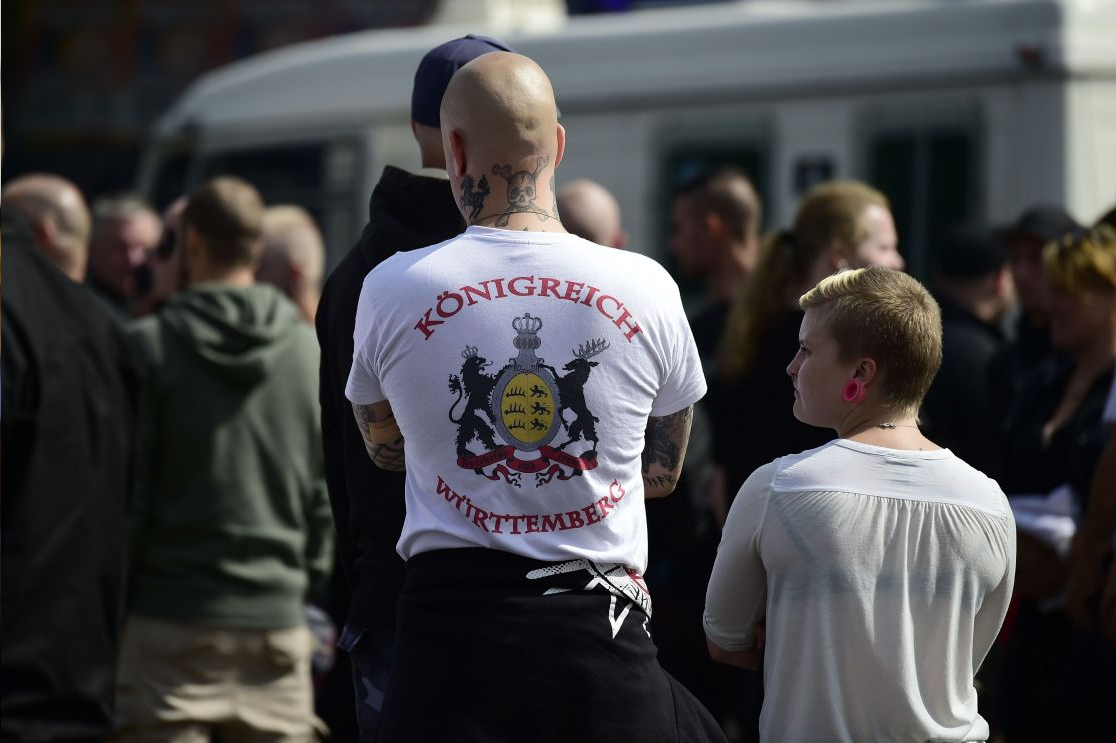500 neo-Nazis descend on Berlin to mark Rudolf Hess's birthday
500 counter demonstrators have also gathered in the city

Your support helps us to tell the story
From reproductive rights to climate change to Big Tech, The Independent is on the ground when the story is developing. Whether it's investigating the financials of Elon Musk's pro-Trump PAC or producing our latest documentary, 'The A Word', which shines a light on the American women fighting for reproductive rights, we know how important it is to parse out the facts from the messaging.
At such a critical moment in US history, we need reporters on the ground. Your donation allows us to keep sending journalists to speak to both sides of the story.
The Independent is trusted by Americans across the entire political spectrum. And unlike many other quality news outlets, we choose not to lock Americans out of our reporting and analysis with paywalls. We believe quality journalism should be available to everyone, paid for by those who can afford it.
Your support makes all the difference.Some 500 far-right extremists began a march in Berlin on Saturday in honour of the 30th anniversary of the death of top Nazi Rudolf Hess.
About 500 counter-demonstrators gathered nearby the parade in the Spandau district, separated by hundreds of heavily armored police.
Berlin police spokesman Carsten Mueller told The Associated Press that authorities have imposed a number of restrictions on Saturday's march to ensure it passes peacefully.
Police have told organizers they can march, but they're not allowed to glorify Hess, who died at Spandau prison. The neo-Nazis are allowed to bring banners: but only one for every 50 participants.
Such restrictions are common in Germany and rooted in the experience of the pre-war Weimar Republic, when opposing political groups would try to forcibly interrupt their rivals' rallies, resulting in frequent bloody street violence.
The exact rules differ according to the circumstances, but police in Germany say they generally try to balance protesters' rights to free speech and free assembly against the rights of counter-demonstrators and residents.
The rules mean that shields, helmets and batons carried by far-right and Neo-Nazi protesters in Charlottesville last weekend wouldn't be allowed in Germany.
Openly anti-Semitic chants would prompt German police to intervene, although efforts would be made to detain specific individuals rather than to stop an entire rally, police say.
Left-wing groups expect about 1,000 people to attend the counter-protests.
Hess, who received a life sentence at the Nuremberg trials for his role in planning World War II, died on Aug. 17, 1987. Allied authorities ruled his death a suicide, but Nazi sympathizers have long claimed that he was killed and organise annual marches in his honour.
The marches used to take place in the Bavarian town of Wunsiedel, where Hess was buried until authorities removed his remains.
Associated Press
Join our commenting forum
Join thought-provoking conversations, follow other Independent readers and see their replies
Comments